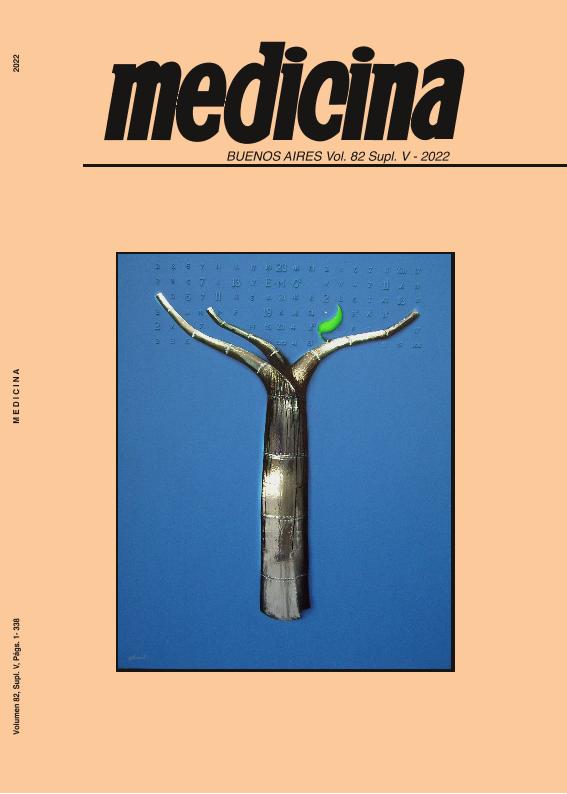Mostrar el registro sencillo del ítem
dc.contributor.author
Segovia, Marisol Magali

dc.contributor.author
Balaszczuk, Veronica

dc.contributor.author
Macchione, Ana Fabiola

dc.date.available
2023-09-22T14:44:04Z
dc.date.issued
2022
dc.identifier.citation
Omega 3 mitigation on deficient hypoxic-ventilatory response (HVR) induced by moderate ethanol doses in an animal model equivalent to the third trimester of human pregnancy; LXVII Reunión Anual de la Sociedad Argentina de Investigación Clínica; LXX Reunión Anual de la Sociedad Argentina de Inmunología; 3er Congreso Franco Argentino de Inmunología y Reunión Anual 2022 de la Sociedad Argentina de Fisiología; Mar del Plata; Argentina; 2022; 67-67
dc.identifier.issn
0025-7680
dc.identifier.uri
http://hdl.handle.net/11336/212694
dc.description.abstract
Maternal ethanol (EtOH) intake during pregnancy and lactation is a highly frequent "social" behaviour in Argentine, expounding fetus or neonates to moderate EtOH intoxication through amniotic fluid and maternal milk. Early exposure to EtOH triggers in the organism a spectrum of neurobehavioral dysfunctions affecting, also, the breathing response. Hypoxia acts as an environmental stressor eliciting breathing adaptations, like Hypoxic Ventilatory Responses-HVR, that may be altered by the EtOH exposure. One of the detrimental effects of early EtOH exposure is the reduction of the Omega3-O3 levels in the CNS. Experiment 1: Pups were intoxicated with 2.0g/kg or 0.0g/kg of EtOH, ig at postnatal days (PDs) 3-5-7-9. At PD9, also were subjected to a hypoxic event [5 min of initial normoxia, followed by 3 episodes of hypoxia (O2 8%) of 5 min, separated by periods of recovery-normoxia of the same duration]. Breathing frequencies and apneas were recorded in a whole body plethysmograph at PDs 3-5-7 x 5 min and at PD9 x 35 min of test. Experiment 2: The same experimental protocol of EtOH exposure at PDs 3-5-7-9 was employed. However, at PDs 3-5-7, pups received 0.0 or 720 mg/kg O3 (ig), 20 min after EtOH administration. At PDs 5 and 7, EtOH-intoxicated pups elicited a breathing depression that was not affected by the O3 administration. During the hypoxic challenge, EtOH-exposed pups expressed a significant breathing depression during initial normoxia and also at each hypoxic event (i.e. a reduced HVR) relative to it expressed in vehicle-exposed pups (p<0.05). Preliminary results indicated a restoration of the HVR in pups exposed to EtOH with O3. A significant increase in the number of apneas in EtOH intoxicated pups was observed after the 2nd and 3rd hypoxic events. At these periods, a protective O3 effect was observed by a reduction in the number of apneas in EtOH-intoxicated pups. These results seem to indicate a mitigation due to O3 upon deleterious EtOH effects in the neonatal HVR. Funding by MINCyT-Cba; FONCyT and SECyT-UNC.
dc.format
application/pdf
dc.language.iso
eng
dc.publisher
Fundación Revista Medicina
dc.rights
info:eu-repo/semantics/openAccess
dc.rights.uri
https://creativecommons.org/licenses/by-nc/2.5/ar/
dc.subject
HYPOXIC-VENTILATORY RESPONSE
dc.subject
NEONATES
dc.subject
OMEGA 3
dc.subject
ETHANOL EXPOSURE
dc.subject.classification
Neurociencias

dc.subject.classification
Medicina Básica

dc.subject.classification
CIENCIAS MÉDICAS Y DE LA SALUD

dc.title
Omega 3 mitigation on deficient hypoxic-ventilatory response (HVR) induced by moderate ethanol doses in an animal model equivalent to the third trimester of human pregnancy
dc.type
info:eu-repo/semantics/publishedVersion
dc.type
info:eu-repo/semantics/conferenceObject
dc.type
info:ar-repo/semantics/documento de conferencia
dc.date.updated
2023-09-15T11:06:06Z
dc.identifier.eissn
1669-9106
dc.journal.volume
82
dc.journal.number
V
dc.journal.pagination
67-67
dc.journal.pais
Argentina

dc.journal.ciudad
Buenos Aires
dc.description.fil
Fil: Segovia, Marisol Magali. Universidad Nacional de Córdoba. Instituto de Investigaciones Psicológicas. - Consejo Nacional de Investigaciones Científicas y Técnicas. Centro Científico Tecnológico Conicet - Córdoba. Instituto de Investigaciones Psicológicas; Argentina
dc.description.fil
Fil: Balaszczuk, Veronica. Universidad Nacional de Córdoba. Instituto de Investigaciones Psicológicas. - Consejo Nacional de Investigaciones Científicas y Técnicas. Centro Científico Tecnológico Conicet - Córdoba. Instituto de Investigaciones Psicológicas; Argentina. Universidad Nacional de Córdoba. Facultad de Psicología; Argentina
dc.description.fil
Fil: Macchione, Ana Fabiola. Universidad Nacional de Córdoba. Facultad de Psicología; Argentina. Universidad Nacional de Córdoba. Instituto de Investigaciones Psicológicas. - Consejo Nacional de Investigaciones Científicas y Técnicas. Centro Científico Tecnológico Conicet - Córdoba. Instituto de Investigaciones Psicológicas; Argentina
dc.relation.alternativeid
info:eu-repo/semantics/altIdentifier/url/https://www.medicinabuenosaires.com/PMID/36368022.pdf
dc.relation.alternativeid
info:eu-repo/semantics/altIdentifier/url/https://www.medicinabuenosaires.com/indices-de-2020/volumen-82-ano-2022-s5/
dc.conicet.rol
Autor

dc.conicet.rol
Autor

dc.conicet.rol
Autor

dc.coverage
Nacional
dc.type.subtype
Reunión
dc.description.nombreEvento
LXVII Reunión Anual de la Sociedad Argentina de Investigación Clínica; LXX Reunión Anual de la Sociedad Argentina de Inmunología; 3er Congreso Franco Argentino de Inmunología y Reunión Anual 2022 de la Sociedad Argentina de Fisiología
dc.date.evento
2022-11-16
dc.description.ciudadEvento
Mar del Plata
dc.description.paisEvento
Argentina

dc.type.publicacion
Journal
dc.description.institucionOrganizadora
Sociedad Argentina de Investigación Clínica
dc.description.institucionOrganizadora
Sociedad Argentina de Inmunología
dc.description.institucionOrganizadora
Sociedad Argentina de Fisiología
dc.source.revista
Medicina (Buenos Aires)

dc.date.eventoHasta
2022-11-19
dc.type
Reunión
Archivos asociados
